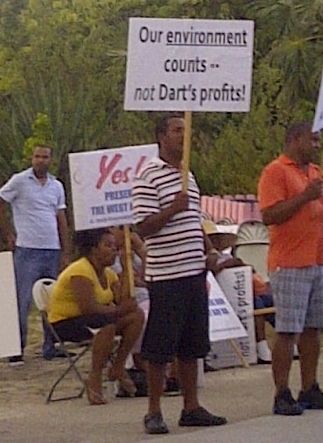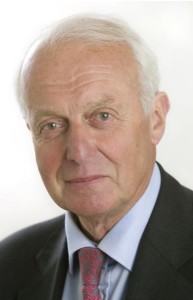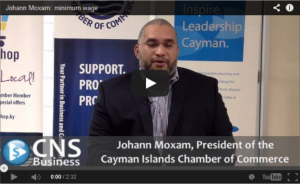Archive for August, 2014

West Bay ladies return to court over road
 (CNS): Four women from the district of West Bay who mounted a legal challenge to the closure of the West Bay Road are continuing their fight next week with an appeal against the Grand Court’s decision in February this year that their action was out of time. Alice Mae Coe, Annie Multon, Ezmie Smith and Betty Ebanks will be in the Cayman Islands Court of Appeal on Monday using their own funds and donations from members of the public, to press the case. In the first instance the appeal panel will hear the ladies' application for protected costs, which is being contested, arguments over late submissions by government and Dart, and the dismissal of the appeal.
(CNS): Four women from the district of West Bay who mounted a legal challenge to the closure of the West Bay Road are continuing their fight next week with an appeal against the Grand Court’s decision in February this year that their action was out of time. Alice Mae Coe, Annie Multon, Ezmie Smith and Betty Ebanks will be in the Cayman Islands Court of Appeal on Monday using their own funds and donations from members of the public, to press the case. In the first instance the appeal panel will hear the ladies' application for protected costs, which is being contested, arguments over late submissions by government and Dart, and the dismissal of the appeal.
Although they received legal aid in the first instance the ladies are now funding the case personally with financial backing from individuals in the community who also support the cause. Despite the decision in the Grand Court going against them they have refused to give up what is turning into a David and Goliath fight, to regain access to a road that has been in use for more than 100 years.
The case is expected to open at 10am on Monday in Court Room 6.
The women were part of a much wider campaign against the closure of the road, which was part of a deal originally signed by McKeeva Bush when he was premier and included land swaps and the construction of the Esterley Tibbett’s highway extension into West Bay, while creating beachfront property on Dart-owned land along the last remaining undeveloped stretch of Seven Mile Beach.
Although only one part of the road that the islands’ largest developer wishes to be closed has been gazetted, the full stretch of road is closed except for access but negotiations with government and Dart remained stalled.
The most recent comments by the premier regarding the stalled talks over the so-called, ForCayman Investment Alliance and the NRA agreement were made more than two months ago. Premier Alden McLaughlin said that a meeting between him and the Dart CEO had led to a better understanding on both sides. He said that he had received a letter from Dart, which was described as “very helpful”, and was optimistic that the government and Dart would be able to come to terms on which they could agree, but nothing has been said since.

Cayman government ‘astounded’ by blacklisting
 (CNS Business): The minister for financial services has said the decision by the UK’s Financial Conduct Authority to place the Cayman Islands on its high risk countries list, as reported by CNS Business on Thursday, defies logic. Astounded by the decision, Wayne Panton told CNS Business Thursday that government had already written to the FCA about the listing requesting a review and removal, but following the body’s refusal he was considering a judicial review. While Panton listed the reasons why Cayman should not be included, given the FCA’s published criteria, the financial watchdog said there was still a money laundering risk in the Cayman framework. Read more on CNS Business
(CNS Business): The minister for financial services has said the decision by the UK’s Financial Conduct Authority to place the Cayman Islands on its high risk countries list, as reported by CNS Business on Thursday, defies logic. Astounded by the decision, Wayne Panton told CNS Business Thursday that government had already written to the FCA about the listing requesting a review and removal, but following the body’s refusal he was considering a judicial review. While Panton listed the reasons why Cayman should not be included, given the FCA’s published criteria, the financial watchdog said there was still a money laundering risk in the Cayman framework. Read more on CNS Business
Jeffers guilty of third killing
(CNS): A jury of 11 women and one man agreed unanimously that Raziel Omar Jeffers (31) was guilty of manslaughter in the shooting death of Marcos Duran in March 2010 but not guilty of the more serious charge of murder. However, Jeffers will now return to jail while he awaits sentence as he is already serving two life sentences for the murder of Marcus Ebanks in 2009 and Damion Ming in 2010. Jeffers had little reaction to the verdict which was made by the jury in about three hours. The crown's case was that he had masterminded a plan to rob Duran as he was on his rounds selling illegal numbers and that he had armed the assailants with lethal barrelled weapons.
In February 2012, in a judge-alone trial Justice Charles Quin found Jeffers guilty of the murder of Marcus Ebanks in July 2009. He was also convicted of trying to kill four other young men, including Adryan Powell, who was paralyzed as a result of the multiple gunshots he received on the evening of the shooting. Jeffers was one of two gunmen who had opened fire on a group of young men as they sat in a West Bay yard in July 2009.
In April 2014 a jury found Jeffers guilty of the murder of Damion Ming. As he handed down a second life sentence, the judge told Jeffers he believed he was a cruel, calculating cold blooded killer.
All three cases depended heavily on the evidence of the crown's key witness, Meagan Martinez, Jeffers' former girlfriend and the mother of his young son, who said her lover had confessed his crimes to her.
Body found at Spotts condo
(CNS) Updated: The body of an unidentified man which found at a condo complex on Shamrock Road in the Spotts area of Savannah last week, has still not been publicly identified at the request of his family. The police have said however that it is a 50 year old British man who is a resident on the island but who had not been seen for just over a week. An RCIPS spokesperson said last week that neighbours were drawn to his apartment at Coral Bay Village where the man's body was later found by police. No details have been given concerning the cause of death at this stage but a post mortem was carried out on Saturday. Although an investigation is currently underway into the man's death police have not indicated that there any suspicious circumstances.
Police stated that further details would be released to the public when available. Check back to CNS later for updates on this latest story.

New face joins appeal court for summer session
 (CNS): Following the retirement of Sir Anthony Campbell from the Cayman Islands Court of Appeal, there is a new face on the bench for this summer session of the local high court. Sir George Newman was sworn in on Monday, 11 August, by the governor as the appeal court got underway. Officials said he brings a wide range of experience as an advocate and as a judge. As an advocate, he was involved in constitutional lawcases in the Privy Council, dealing with challenges under the constitution against the governments of various Commonwealth jurisdictions. First appointed to the bench in 1995, as a High Court Judge in England & Wales, he has dealt with a wide variety of work involving serious crime.
(CNS): Following the retirement of Sir Anthony Campbell from the Cayman Islands Court of Appeal, there is a new face on the bench for this summer session of the local high court. Sir George Newman was sworn in on Monday, 11 August, by the governor as the appeal court got underway. Officials said he brings a wide range of experience as an advocate and as a judge. As an advocate, he was involved in constitutional lawcases in the Privy Council, dealing with challenges under the constitution against the governments of various Commonwealth jurisdictions. First appointed to the bench in 1995, as a High Court Judge in England & Wales, he has dealt with a wide variety of work involving serious crime.
On his first visit ever to visit to Cayman, this week he said: “I feel very happy that I am able to be here because I see it as part of a continuous passage of being involved in the rule of law in the Commonwealth and, in particular, the Caribbean.”
Welcoming Sir George, Chief Justice Anthony Smellie said it was a great pleasure. “The wealth of experience that he brings from around the Commonwealth, both as a leading advocate and judge, will certainly help to maintain the high reputation of our Court of Appeal. I hope that he and Lady Hilary will enjoy their times spent in Cayman."
With human rights cases now emerging in the Cayman Islands, court officials said Sir George’s extensive role as an advocate arguing such constitutional cases is of particular significance. His expertise in resolving legal matters in the constitutional and political arenas was recognized when after an attempted coup in Trinidad, he acted and advised in court proceedings in the aftermath of the violence there.
As well as his work as a judge the new member of the appeal court brings experience as the UK’s Surveillance Commissioner at the Home Office where he is responsible for judicial scrutiny of law enforcement operations involving serious crime such as terrorism. The aim of these enquiries is to ensure that law enforcement procedures are not disproportionately or unnecessarily intrusive of individual privacy and human rights.
Sir George also has commercial law experience after working on the banking dispute when US President Jimmy Carter, froze Iranian banks in London, and in the International “Tin Council” litigation. He has acted in arbitrations as counsel for various foreign governments, such as the State of Qatar, in a Gulf oil dispute, and an arbitration concerning the security of Qatar’s border technology, and for the People’s Republic of China in a commercial arbitration in Stockholm. He has also acted as an arbitrator in London, Singapore and Stockholm in commercial disputes involving both foreign states and commercial entities.

$130k theft case thrown out
(CNS): A Grand Court judge has thrown a white collar theft case out of court as a result of the failure of investigators to conduct a thorough investigation and obtain any evidence. Justice Charles Quin agreed with a defence application to throw out allegations against Fernando Mendes that he had stolen over $132,000 from his former employers, FINAB Ltd because late disclosure in the case pointed to his innocence and what appeared to be a false allegation made by his ex-bosses. Slamming the Financial Crimes Unit's investigation and raising concerns about his accusers, the judge pointed out that Mendes could have suffered a serious miscarriage of justice were it not for the late intervention of crown counsel in the case, who realized vital evidence was missing and began to find it.
In the immediate wake of his arrest, following the allegations made against him by the CEO of FINAB, Alfonse Finocchario, and his dismissal from the firm, Mendes made counter allegations against his former employer and filed a suspicious activity report (SAR) regarding potential tax evasion activity. Mendes warned the police that documentation existed to support both his allegations over the potential tax abuse and to defend himself over the allegations of theft but the police were very slow to respond. This was all the more problematic as Mendes had reason to believe his ex-bosses were destroying evidence.
Mendes had been due to stand trial in June 2012 but as a result of disclosure problems from the very start and his lawyer's insistence on finding the evidence needed to clear his client, the trial was delayed. Fortunately, the realization by a member of the Office of the Director of Public Prosecutions (ODPP) that it was clear evidence was missing and that the police had failed to try and recover it, pressure from the crown eventually led to evidence coming to light.
The material that was finally disclosed at the eleventh hour demonstrated Mendes was innocent of certain allegations as transactions the FINAB CEO claimed were fraudulent and amounted to theft by Mendes wereshown to be legitimate, cleared transactions that had been accounted for with regards expense for conferences, paid dividends and other approved payments.
The judge noted in his ruling, “From an early point in the investigations the defendant and his attorneys alerted the Financial Crimes Unit to the importance and relevance of material held in the offices of FINAB including emails and other electronic data.”
Despite this, the relevant material was not provided to assist Mendes in his case and during the course of the police investigation it appears that Mendez’ former employers did not disclose relevant material to the police. At first the firm’s director denied their existence and it was not until July of this year, some three years after allegations were made against Mendes, that crucial evidence in emails and documents he had claimed would clear him came to light.
During the FCU enquiry the firm’s director was less than direct with the police about emails and documentation in existence which could have assisted in clearing Mendes very early on.
“The Court is less than impressed with Alfonse Finocchario’s delay in assisting police and the contradicting statements that he made regarding which emails he has or does not have in his possession,” Justice Quin observed.
Pointing out that he is an experienced banker who made serious allegations against Mendez, the judge said Finocchario had a duty to provide the police with full and frank disclosure of all the relevant documents relating to his allegations.
When the defence finally began to see the emails it was quite clear that some of the money Mendez had been accused of stealing had been accounted for, examples that caused the court "great concern” the judge stated in his ruling last week. He pointed out this evidence raised the question of what other documents which have not been disclosed would show the defendant was innocent of the charges against him.
Justice Quin said that had the defendant’s trial, originally set for 5 June 2012, gone ahead he could have been convicted of charges relating to certain sums of money when undisclosed documents existed to demonstrate he was not guilty. “This would have led to a very serious miscarriage of justice for which FINAB and AF would have had to bear significant responsibility,” he said.
The judge also believed there are more documents relating in the case that have never been disclosed by Mendes’ former employers. “The court is very disturbed by the extremely late and incomplete disclosure of electronic data from FINAB,” Justice Quin stated, describing the disclosure from the firm as “entirely flawed”.
Justice Quin also made it clear he had serious concerns about the FCU’s conduct and what he said was the “apparent lack of support that the RCIPS has given to the DPP” in the case.
“This is a concern that I have expressed on previous occasions,” the judge stated in his ruling. “It is imperative that Senior Investigating Officers liaise closely with the crown counsel to ensure that discovery/disclosure is carefully examined and to ensure that it is as full and complete as possible.
“In this caseit was the duty of the RCIPS to carry out an open minded and independent investigation to discover whether AF’s allegations against the defendant were true or untrue,” he said, adding that the police are also responsible for collecting and preserving relevant material that may undermine a case against an accused as well as support it.
The judge said that while Mendes’ laptop and hard drive were seized at the time of his arrest no emails were ever recovered from it and the police had said they were unable to read the relevant files or extract the data as it was too difficult.
The judge said it should “have been obvious” to the Financial Crimes Unit that vital material was missing and the police needed to conduct a proper investigation. But, he said, there was "no evidence that anyone within the FCU focused their attention in this important lack of disclosure of the FINAB data”.
Justice Quin said that it was not until Michael Snape from the ODPP began to review the case and later, Toyin Salako, that prosecutors realized important evidence was missing and began to put pressure on the complainants to provide the relevant material.
As a result late in the day it became quite apparent that at least some of the allegations made against the defendant were false, calling the entire case into question given that much more material could very well exist that would clear him of the rest of the allegations.
The judge said both the police and FINAB had a duty to collect and retain all the relevant material to support the allegations being made but from the start the police failed to seize the relevant documents. The judge said the police failed to pursue all lines of enquiry and failed to collect the material which existed that undermined the accusations.
“This failure has led to a serious prejudice which, in my view, renders it impossible for the defendant to have a fair trial, particularly some five years after the time the offences are alleged to have been committed and three and a half years after his arrest,” the judge said.
”Consequently there has been a serious fault as to render it unfair to try the defendant for the offence on this indictment,” he added as he threw out the case.
The judge made no comment about the counter allegations made by Mendes and whether or not the FCU had pursued that line of enquiry. CNS has contacted the FCU regarding the case and is awaiting a response.

Chamber wants to partner with government
 (CNS Business): The Cayman Islands Chamber of Commerce wants the same thing that the government does, according to its president, Johann Moxam, who says that there seems to be some reluctance on the part of the government, including the National Workforce Development Agency, “to really sit down at the table and have a candid and comprehensive discussion on the way forward”. Watch video on CNS Business
(CNS Business): The Cayman Islands Chamber of Commerce wants the same thing that the government does, according to its president, Johann Moxam, who says that there seems to be some reluctance on the part of the government, including the National Workforce Development Agency, “to really sit down at the table and have a candid and comprehensive discussion on the way forward”. Watch video on CNS Business

Domestic assault victim air-lifted to Miami
(CNS): The 53-year-old woman who was brutally attacked with a machete in a domestic assault Tuesday has been airlifted to Miami for vital medical treatment. Police have said that she sustained serious injuries but remains in a critical but stable condition. The 42-year-old man who was arrested shortly after the incident is also in hospital with self-inflicted wounds. An RCIPS spokesperson said that he is in stable condition and remains in police custody while the investigation continues. The incident took place in Bodden Town at around 6:30pm on Tuesday 12 August.
Further updates will be made available, police said.

Colorado’s ganja legalization applauded
 (CNS): An independent report into the way Colorado implemented the legalization of ganja has lauded the State’s efforts. Acknowledging a number of issues that local officials will need to address, from the way edible marijuana is sold to its cultivation, the study by John Hudak, from the Brookings Institution, examines the administrative elements of the legislative change rather than passing judgment on the rights and wrongs or moral position on lifting the prohibition. Noting that it is too early to judge the success of the policy, Hudak says that it is not too early to say that the implementation of legal retail marijuana has been largely successful.
(CNS): An independent report into the way Colorado implemented the legalization of ganja has lauded the State’s efforts. Acknowledging a number of issues that local officials will need to address, from the way edible marijuana is sold to its cultivation, the study by John Hudak, from the Brookings Institution, examines the administrative elements of the legislative change rather than passing judgment on the rights and wrongs or moral position on lifting the prohibition. Noting that it is too early to judge the success of the policy, Hudak says that it is not too early to say that the implementation of legal retail marijuana has been largely successful.
The report comes as more US states are pondering the legalization of recreational as well as medical ganja use and as the western world slowly begins to re-think its failed war on all drugs. Jamaica is currently assessing its position and lining itself up to benefit not just from the direct financial revenue but the management of finances associated with what is expected to become a major industry in the future.
Meanwhile, here in Cayman as legislators continue to back a zero tolerance policy and refuse to even openly discuss the matter, the criminalization of people for possession of miniscule quantities and even consumption continues.
The new report from the think tank which revues government policy demonstrates that Colorado achieved a complete cultural turnaround, even in the face of federal opposition, and indicates a number of elements that have led to the legalization rollout’s success.
“The state has met challenging statutory and constitutional deadlines for the construction and launch of a legal, regulatory, and tax apparatus for its new policy,” Hudak writes in the independent academic paper. “In doing so, it has made intelligent decisions about regulatory needs, the structure of distribution, prevention of illegal diversion, and other vital aspects of its new market. It has made those decisions in concert with a wide variety of stakeholders in the state.”
The report praises the innovation, professionalism, competence, leadership, and execution of the legalization and said that the broad success of the state in putting into effect a policy that had no true precedent was a difficult task. While he notes shortcomings and challenges which cannot be overlooked, the report finds that the state government has met the most basic standard of success.
“It has done what Amendment 64 instructed it to do. Colorado has effectively created regulatory and administrative apparatuses that facilitate the legal retail marijuana market,” said Hudak.
“Through a series of legislative, executive, and administrative actions, the state has allowed product to come to market; ensured that monitoring and enforcement processes were in place and functioning; collected revenue from marijuana sales; and sought to build, maintain, and improve the ability of the state to continue to regulate the market effectively,” he added
Commending the leadership at the state level for the success, the government policy expert said that not everything is perfect but a “strong launch, built on a capable and flexible administrative infrastructure, gives Colorado a leg up as events unfold,” Hudak wrote.
Colorado earned over $6 million from ganja sales in just the first two months of the change in the law and the report reveals that the revenue collection has also been well-managed, with money going to fund important projects such as building schools, substance abuse treatment, public-health education campaigns, and law-enforcement training, as well as the actual enforcement of the new laws.
See full report here.

Third arrest for Brac booze burglary
(CNS): Police said this morning that a 21-year-old man was arrested today on suspicion of burglary/handling stolen goods in connection with a break-in at the Coral Isle Bar on Cayman Brac on 29 July. Two 17-year-old boys, Geoff Ryan Scott and Torry Javier Powery, were charged with stealing 19 bottles of alcohol and possession of ganja and appeared for the fist time in court last week. Police arrested the youngsters after one bottle of the stolen loot was discovered at Scott's house, where both boys were staying, and others were then found hidden on property nearby.
Scott was bailed on a tag but with no one to sign surety for him, Powery was remanded in custody until the teenagers' next court appearance on 14 August.
Police said today's arrest followed extensive investigations by the Cayman Brac officers.
Chief Inspector Owens said, “The further positive actions in this matter would not have Ben possible without the information supplied by the community, which reiterates what I have said previously and shows the community that any assistance will be treated with utmost confidentiality."